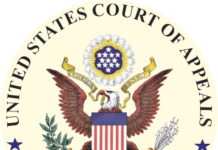Prosecutors and defense attorneys have reached an agreement to preserve the state’s speedy trial law but suspend the statute for three years to give courts time to clear a backlog of cases caused by the pandemic.
The House Judiciary Committee agreed to the settlement that calls for suspending the speedy trial law until May 1, 2024, for all criminal cases to give the courts the ability to work through cases that have piled up during the pandemic.
The committee also removed a section of the bill that would have outright ended speedy trial rights in state law, which is stricter than the broader-worded right enumerated in the Sixth Amendment of the U.S. Constitution.
The bill does not affect the Sixth Amendment right to a speedy trial.
The bill now goes to the full House to consider.
A similar proposal is awaiting action in the Senate Judiciary Committee, where Democratic lawmakers had concerns about the 2024 date while one Republican thought the problem could be addressed by the lifting the emergency declaration altogether.
A couple Republican senators voiced concern about not limiting the bill to only cases existing before the effective date of the legislation, saying that opening it up to all criminal cases going forward could make the backlog even worse.
And there was frustration that lawmakers hadn’t heard from the courts on how the Legislature might address the problem.
“While the bill and the amendment we’re hearing are not ideal, it is a compromise, a resolution to move this issue forward,” said Republican state Sen. Kellie Warren, chair of the Senate Judiciary Committee.
“I’m still entertaining discussion and thoughts,” Warren said. “I believe the compromise that is presented to us in the amendment was thoroughly vetted by both sides, on the defendant side, on the prosecution side.”
State law now sets a 150-day requirement for holding trials for defendants who are in custody and 180 days for those who are out of custody.
The current law also gives the chief justice of the state Supreme Court the latitude to suspend judicial deadlines during an emergency disaster declaration.
The legislation would mean the speedy-trial statute could be waived regardless of whether there is an emergency declaration in place.
If the current emergency declaration lapsed without a new law, prosecutors would be under a tight deadline to try cases for defendants now being held or risk having them dismissed.
The bill would give the courts more latitude to move through their backlog, which varies from judicial district to judicial district.
“Both sides still want to get the cases tried as soon as possible. I do believe that,” said Republican state Rep. Fred Patton, chair of the House Judiciary Committee.
“This is just kind of a worst-case scenario date if they can’t get enough jurors or if they don’t have enough courtroom space,” Patton said.
Patton said this was not the time to debate whether the state’s speedy trial law should be abolished.
“We are focused on responses to COVID,” he said.
Patton said he didn’t think it was appropriate to lump the state’s speedy trial law in with how the Legislature responds to COVID-19.
The bill going to the House sets out how the courts should be prioritizing backlogged cases, starting with the trial court’s calendar, the relative prejudice to the defendant, the defendant’s assertion of a right to a speedy trial and the calendar of the trial counsel.
Republican state Rep. Susan Humphries of Wichita expressed reservations about the settlement.
“I am really glad they came to a compromise,” Humphries said. “But I’m disappointed that it’s still May of 2024.
“That’s an awfully long time to be sitting there,” she said. “I’m not happy with that date.”
















